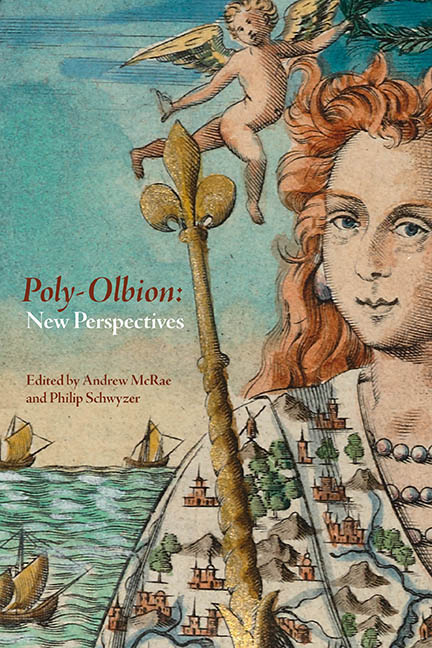3 - Of Albion' ‘sundry varying soyles’: The Land and its Human Occupants in Poly-Olbion
Published online by Cambridge University Press: 27 March 2020
Summary
Michael Drayton's intention to describe ‘The sundry varying soyles’ of ‘Albion’ is proclaimed in the second line of Poly-Olbion, and repeated in almost identical words at the beginning of the final song (30.3). The nation’s soils, and their differences from place to place, are thereby acknowledged as fundamental to the author's appreciation of his land. This commitment was perhaps suggested to Drayton by his most valued source, William Camden’s Britannia, in which each county description is prefaced with a consideration of soil and land use. Drayton's practice is in fact less consistent than that of Camden, since for much of the poem he struggles to find a place to consider his nation's earth. But the repeated authorial promises assert an insistent pressure on the poem, and in Song 23 the ‘plaine and poor’ voice of Helidon Hill interjects with a remarkable extended survey of England’s different geological and agricultural regions (23.59). The note of anxiety about Helidon's status is telling; this is an uneasy passage, lacking the assertive tone of much other environmental description in the poem, yet notable for its reflection upon quotidian interactions between the land and those who work it. More than any other passage in Poly-Olbion, it is concerned with the ethics of human occupation of the nation's soil.
While most studies of Drayton's representations of the natural environment have focused on woodland, perceived always as under threat at the hands of humanity, the soil matters to Poly-Olbion in different ways. Soil represents the interface between humans and the natural world, given visibility and meaning at the moment when it is cultivated. In Hillary Eklund’s words, the soil is ‘the volatile skin of a living earth’, a vital and transformative ‘field of human action’. Yet it has often passed unnoticed in studies of humanity and the natural world in the early modern period, which have focused more regularly on plants, trees, water, and animals. Classic studies in the field, by authors such as Keith Thomas, Carolyn Merchant, and Raymond Williams, barely mention the soil; more recent ecocritical – and ‘ecomaterial’ – work on early modern texts has most commonly fallen into the same line. But this pattern has not gone entirely unchallenged.
- Type
- Chapter
- Information
- Poly-Olbion: New Perspectives , pp. 69 - 88Publisher: Boydell & BrewerPrint publication year: 2020

